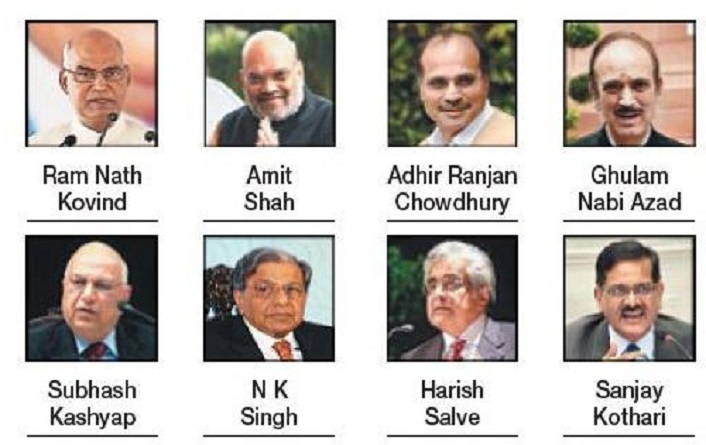‘One nation, one election’: 8-member panel formed
| Date :03-Sep-2023 |

NEW DELHI :
Cong leader Adhir Ranjan Chowdhury declines to be part of the committee
THE Government on Saturday notified an eight-member high-level committee to examine and make recommendations at the earliest on the issue of holding simultaneous elections to the Lok Sabha, State Assemblies, Municipalities
and Panchayats.
The notification said the panel will be headed by former President Ram Nath Kovind and will have Home Minister Amit Shah, Congress leader in Lok Sabha Adhir Ranjan Chowdhury, former leader of the Opposition in Rajya
Sabha Ghulam Nabi Azad and former Finance Commission Chairman N K Singh as
members.
However, in a letter written to Home Minister Shah later in the evening, Congress leader Chowdhury declined to be part of the panel.
“I have no hesitation whatsoever in declining to serve on the Committee whose terms of reference have been prepared in a manner to guarantee its conclusions. It is,
I am afraid, a total eyewash,” he said in the letter. The Government notification said the panel will commence functioning immediately and make recommendations “at the earliest”, but did not specify a timeframe to submit the report. The high-level committee will also have former Lok Sabha Secrertary General Subhash C Kashyap, senior advocate Harish Salve and former Chief Vigilance Commissioner Sanjay Kothari as members. Law Minister Arjun Ram Meghwal will attend the meetings of the committee as a special invitee, while Law Secretary Niten Chandra will be the secretary to the panel.
The committee will examine and recommend specific amendments to the Constitution, the Representation of the People Act and any other laws and rules which would require amendments for the purpose of holding simultaneous elections. It has also been tasked to suggest a framework for synchronisation of elections and “specifically suggest the phases and timeframe within which simultaneous elections may be held if they cannot be held in one go...”
It will also examine and recommend if the amendments to the Constitution would require ratification by the States. Certain amendments to the Constitution require ratification by at least 50 per cent of the State Assemblies.







